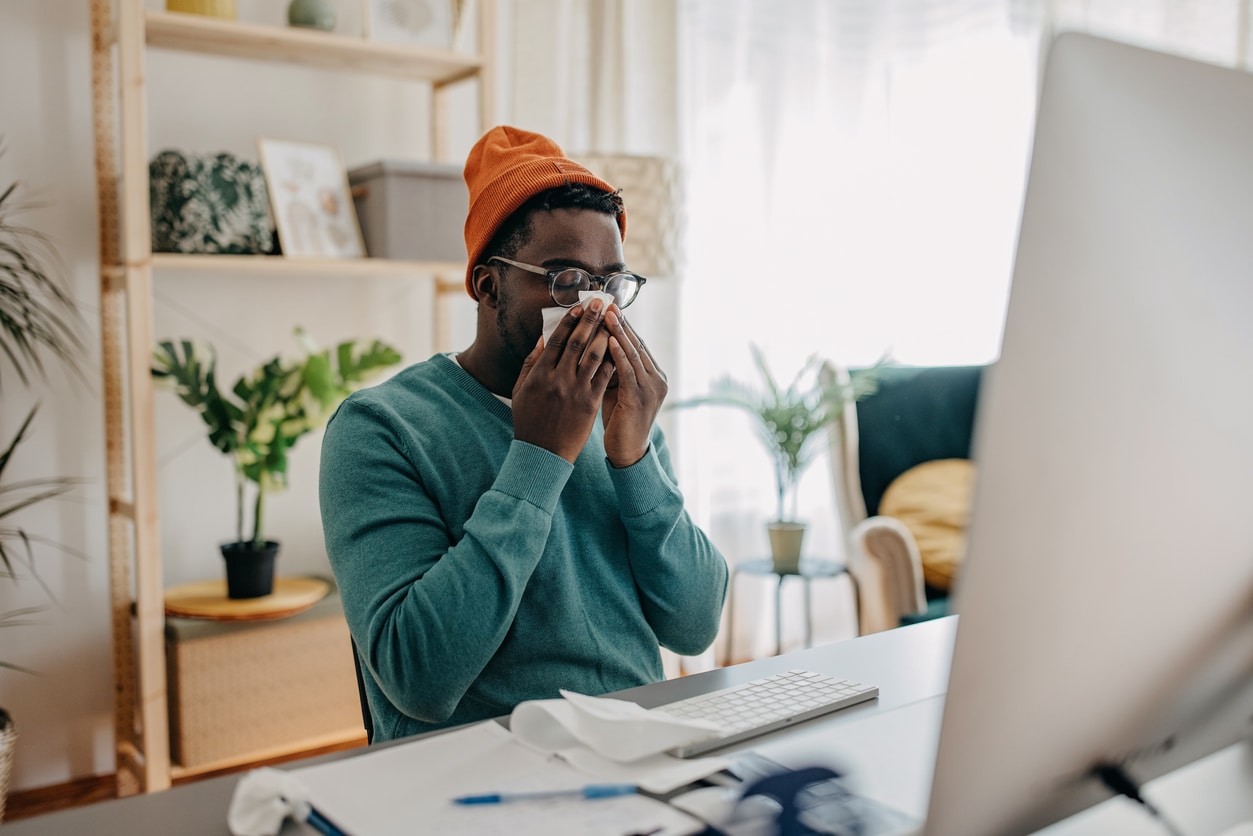Sinusitis is the official term for a sinus infection. It occurs when bacteria fester in the sinuses—the spaces inside the nose and head—causing the tissue lining of the sinuses to become inflamed. This inflammation blocks drainage passageways through the nose and throat, making it difficult for mucus to drain properly. If you’ve been suffering from a sinus infection, here are some things you can do to treat or relieve symptoms.

How To Treat Sinusitis
Here are some steps you can take that will reduce the inflammation causing the infection:
- Drink fluids. Staying hydrated is key to recovery. Your body needs that hydration to fight the infection. Additionally, hot liquids like tea or soup can help relieve pain and open up the nasal passageways, helping you breathe easier.
- Get lots of rest. Sleep gives our body the energy it needs to continue fighting the infection.
- Consider humidity. Taking a hot, steamy shower or using a humidifier can break up the stuffiness in your nose. Using a warm compress on your face will also help with that, and the warmth will help ease the discomfort and swelling.
- Use medication. Common over-the-counter (OTC) medicines are effective at managing sinusitis symptoms. You can use mild pain relievers like acetaminophen (Tylenol) or ibuprofen (Advil). Acetaminophen is especially useful if you’re also experiencing a fever. Decongestant nasal sprays can open your stuffy nose, but don’t use them for more than a few days. Over time, they could make your symptoms worse.
- Rinse your sinuses. A neti pot or nasal spray can clean your nasal cavities, flush out mucus and alleviate sinus congestion. Always use distilled, sterile or boiled water to rinse your sinuses.
Activities with Sinusitis
Sinusitis doesn’t necessarily mean you need to stay home, but you should be gentle on your body while it fights the infection.
You can continue going to work or school; sinusitis isn’t contagious. However, only go out if you feel well enough; continuing to work could wear you out. You can also keep up with your workout routine, but consider whether you feel well enough. Inflamed nasal passages can make breathing difficult, and exercising requires strong airflow. If you are having difficulty breathing, skip the gym until things clear up. On that note, don’t swim in a pool until the infection is cleared. Chlorine in pools can irritate your nasal passageways even more.
It’s not a good idea to travel by air if you have sinusitis. The high air pressure on board can increase inflammation and raise the chances of ear pain.
Finally, don’t drink alcohol while you have a sinus infection. Alcohol dehydrates the body, which causes your nose and nasal cavities to swell and exacerbate your symptoms.
When to Seek Medical Attention
Acute sinusitis is manageable at home, but if you’ve been suffering from a sinus infection for over 10 days, it’s time to see your healthcare provider. They can use a nasal corticosteroid spray to reduce inflammation in the sinuses, prescribe antibiotics or treat allergies or asthma if that’s the root cause. Our team at Palmetto ENT & Allergy is here to help you with your treatment.
If you have severe symptoms such as high fever, bad headaches, confusion, swelling around the face and eyes or a stiff neck, see a healthcare provider right away.
